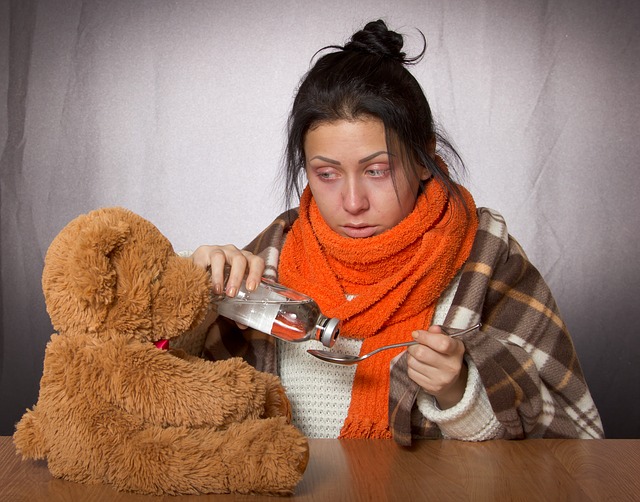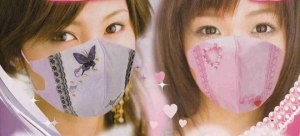Soundtrack in my head: The Polyphonic Spree “Hold Yourself Up”

The flu is back, and scarier than 2009!
Pardon my sarcasm. Influenza is not something I take lightly–especially given the risk that it can trigger my asthma and possibly even bring on pneumonia.
It’s just that the more this flu season is hyped on the news, the less we actually seem to be informed. One big example is the 62% effectiveness of the flu shot reported the Center for Disease Control. “We found overall vaccine effectiveness to be 62%,” said CDC Director Thomas Frieden, MD, MPH, at a press briefing. “That means if you got vaccinated you were about 60% less likely to get influenza requiring you to go to a doctor.”
The most complete report of the study I found was here. Unless I (or the report) am missing something, what Dr. Frieden said and what the CDC reported seem to be two entirely different things. The sample consisted of over 1,000 people–but only those who were already seeking medical treatment for respiratory infections. So how can he say that the flu shot will make people less likely to need to see the doctor if the CDC only studied those who, um, saw a doctor?
Yet despite what seems to be limitations to the degree of effectiveness of the flu vaccine, watching the news will often lead the viewer to conclude that only the following steps are necessary in order avoid the flu:
-
Flu shot
-
Flu shot
-
Flu shot
-
And, lest you forget, the flu shot
Exhibit A is below.
Whether or not you choose the flu shot, the CDC’s (questionable) 62% figure indicates to me that other practices are equally important:
-
Wash your hands
-
Use hand sanitizer when soap and water is not available
-
Keep your hands away from your face
-
Cover your cough
-
Avoid people if you’re sick
-
Avoid sick people
Hand washing is probably the second most frequently cited advice and for good reason. Hands take germs from doorknobs, hand railings, keyboards, money, and other things touched by more than one person, and infect the person once the hands touch the mouth, eyes, nose, etc. Germs also travel the reverse direction as well. Regular hand washing cuts the path of transmission. Hand sanitizer is a good substitute if soap and water are not available.
What irks me is the enormous number of people who don’t cover their cough. To me, learning how to cover your cough and keep your cough contained should be as basic as toilet training. That there are so many people in our society who are “orally incontinent” in this way is deeply disturbing.
Next piece of advice–avoid people if you’re sick. I’m dismayed that there is a “stuff it up” culture in our workplaces that encourages–and compels–people to come to work sick. Worse is the number of workplaces that don’t allow paid sick days for their workers–particularly restaurants. According to a survey by the Food Chain Worker Alliance, nearly 80% of food workers don’t have sick days, and more than half say that this forces them to come into work sick. So it seems to me another piece of good advice would be to avoid restaurants during flu season–unless they offer sick days. Maybe empty restaurants will convince management that sick days might not be an cost-prohibitive after all.
People in Japan and other parts of Asia have had a long-standing practice of putting on a mask in order to keep others from catching their colds. I think they’re on to something. While avoiding others is the best way, a mask is probably the next best way. The Japanese have succeeded in making this a more attractive fashion accessory. It might also help with that “oral incontinence” issue I was discussing a couple paragraphs before.

Use of masks to prevent the spread of germs seems inconsistent in American health care facilities. Some facilities will hand masks out to patients as they check into Urgent Care if they appear to have a respiratory illness. At the same time, I’ve often noticed a “tough it out” attitude among many health care workers who don’t seem concerned that patients might get sick from staff or other patients. I’ve twice caught colds in Dean Clinic’s urgent care (and have twice complained about it). In both cases there were visibly sick people coughing frequently and loudly who weren’t asked to wear a mask. I think I actually caught a cold from a nurse who was unmasked and not acting too concerned about her sneeze and cough as she asked me to open my mouth and say “Ahhhhh…”
My understanding is that surgical masks don’t really protect the wearer from colds unless they have an N95 rating or higher. There are some out on the market with a microscopic coating that reportedly disable bacteria and some viruses. There are gloves and scarves out on the market that reportedly do the same. I’m not sure how effective these products are, but it’s probably better than nothing as long as it’s not worn longer than recommended. I just might try these out for a test ride on crowded buses.
Oh yeah, and that flu shot. I have always had mixed feelings about the flu shot. A few years ago I ended up going home early from work due to dizziness–five hours after receiving the flu shot. Also that year, a housemate’s respiratory problems seemed to start with the flu shot. In the months that followed that post, her respiratory problems got even worse, and seemed to be an issue for most of the remaining months we lived together.
I’m not going to take a position on the shot vs. no shot controversy. On one level, it makes sense that the more immune people there are, the less like the flu will spread, thereby minimizing the spread. On the other hand, many people believe that the vaccines themselves present a risk, which might make the previous argument moot.
In any case, common sense dictates multiple approaches to avoiding the flu. I fear that over-emphasis on the shot will push aside other practical measures that in my view are equally critical. So I’ve posted them as a public service. Have a happy and healthy winter season!

I saw one newscaster get a flu shot on-camera and found that amusing.
The Japanese face masks are a good idea. You will recall that Japan is an extremely crowded country, so it makes sense to avoid infecting an entire Tokyo subway car.
I’ve been watching reruns of the TV mystery series “Monk” — about a detective with OCD who carries antibacterial wipes everywhere — and that may be worth emulating during flu season.